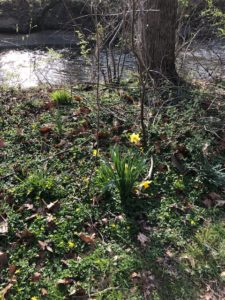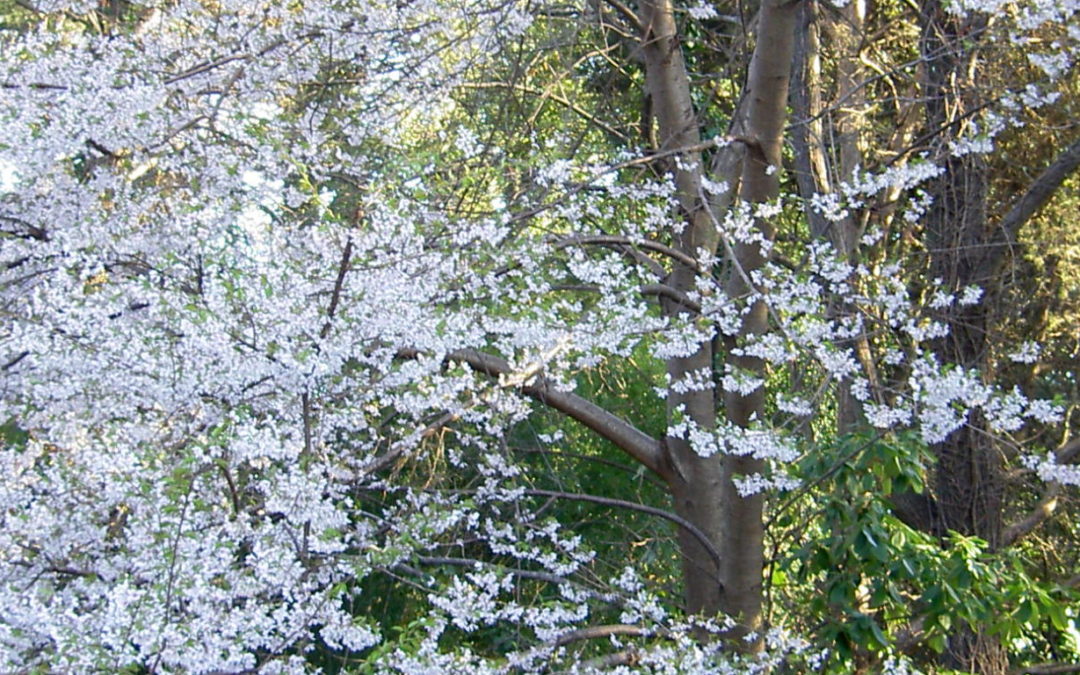 We lost my mom just before the pandemic took hold in our communities, so this spring, coinciding with the Lenten season, has been more than usual a season of loss, of grieving, of concern for so many kinds of suffering in our communities and our neighborhoods. Stripped of our usual routines, self-confined at home, and without the ability to travel to be with those we love most, we are in a stripped-bare time, just as the bare branches are beginning to leaf out, and the cherry trees are coming into bloom, on this first day of spring.
We lost my mom just before the pandemic took hold in our communities, so this spring, coinciding with the Lenten season, has been more than usual a season of loss, of grieving, of concern for so many kinds of suffering in our communities and our neighborhoods. Stripped of our usual routines, self-confined at home, and without the ability to travel to be with those we love most, we are in a stripped-bare time, just as the bare branches are beginning to leaf out, and the cherry trees are coming into bloom, on this first day of spring.
Though my spouse and I are self-quarantined I stay grounded in part through my daily walks outside among trees and woodlands, in the neighborhood or in Rock Creek Park. Every day there are signs of new life, something that seems cruelly incongruous, some days, in a season of grief, and other days,quietly reassuring. I have been thinking of one of my favorite poems by Gerard Manley Hopkins, “God’s Grandeur,” which begins by exclaiming “the world is charged with the grandeur of God/it will flame forth, like shining of shook foil. . . . and then turns to the ways that humanity has violated nature, the industrial landscape of Victorian where “all is seared with trade; bleared, smeared with toil/and wears man’s smudge and shares man’s smell: the soil/is bare now, nor can foot feel, being shod.” (Read the whole poem here)
At the turn of this sonnet comes one of the most lovely uses in poetry of the word “and”. Having looked at the consequences of human folly – greater now than even in his day, the poet turns and says “And for all this, nature is never spent/. There lives the dearest freshness deep down things. . . .
And for all this (i.e. And in spite of all this) – not BUT for all this, but AND: alongside our struggles, our confusions, our deeply destructive folly, nature persists, is never spent. We know even this will change as the planet warms, but I cling to this affirmation of the resilience of nature, and I remember the promise of this “And” as I walk daily – watching day by day as the bare branches leaf out, and flowers appear. I can’t always grasp it, but I say the words as a kind of mantra, a reassurance that I have to trust, even when I cannot fully feel it: “And for all this, nature is never spent.”
